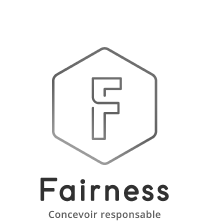Le bon projet
avec le bon expert, l’intelligence naturelle en plus
Nous connaissons des experts en intelligence artificielle,
mais pour qu’ils rencontrent l’équipe dans laquelle ils se
sentiront bien, notre cabinet de recrutement préfère une relation intuitive et privilégiée.


POUR LES ENTREPRISES
Attirez dans votre équipe les meilleurs talents.
Ultra personnalisation garantie.
Du dev React à l’ingénieur dans les énergies renouvelables, Colever identifie, qualifie, sélectionne pour trouver la cohésion parfaite entre votre entreprise et le candidat.
POUR LES CANDIDATS
& LES INDÉPENDANTS
Dénichez le job qui a du sens, l’accompagnement
en plus.
Nous savons que votre savoir-faire est unique et que vous portez une vision authentique. C’est pourquoi nous portons toute notre attention pour vous trouver le job dans lequel vous vous sentirez bien.

Des freelances en France et à l’international
Du dev OPS à l’ingénieur dans les énergies renouvelables, Colever identifie, qualifie et sélectionne votre freelance pour trouver la cohésion parfaite entre votre entreprise et le candidat.
Une plateforme de recrutement dédiée
Des offres sur mesure adaptées à vos projets

L’ENGAGEMENT COLEVER
Nous étudions
bien plus que
le CV
C’est parce que nous privilégions aussi les softskills et la sensibilité de chacun que nous mettons en relation uniquement les profils adéquats.
Accompagner, c’est aussi proposer le meilleur de l’écosystème




